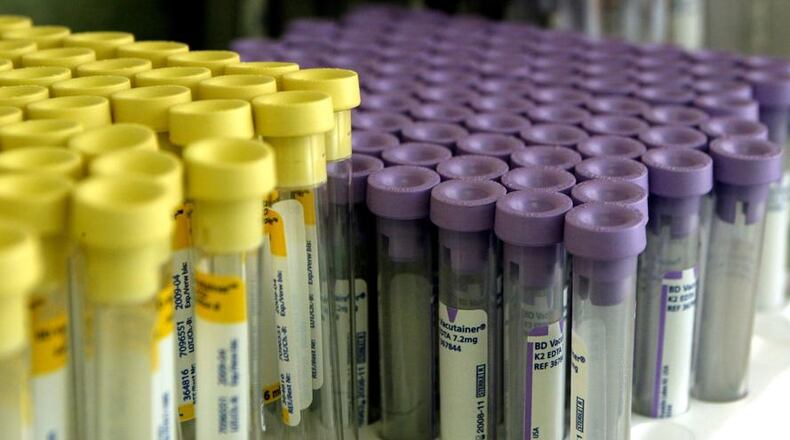Fairfield City Council recently voted to participate in the Butler County Bloodborne Infectious Disease Prevention Program, making it the second community in the county to organize a prevention program. The city of Fairfield is partnering with Mercy Health-Fairfield, the Butler County Mental Health and Addiction Recovery Services Board, and the Butler County General Health District to offer the services.
Middletown was the first Butler County community to launch a similar prevention program.
RELATED: Not all of Fairfield council in support of program offering needle exchanges, more
The Butler County General Health District scheduled a series of public meetings to detail the elements of the program, answer residents’ questions and explain why the program is a good investment in safety and the long-term health of the community, said health commissioner Jenny Bailer.
After the Jan. 23 meeting, here are two more public meetings scheduled through the beginning of February. They include:
• 7 - 8 p.m. Wednesday, Jan. 30 at Mercy Hospital-Fairfield, 3000 Mack Road
• 7 - 8 p.m. Wednesday, Feb. 6 at Fairfield Community Arts Center, 411 Wessel Drive
According to the county health district, the program is a comprehensive, community-based public health initiative providing disease prevention, education and referral services.
The program will offer:
• referral to treatment programs to combat addiction, and to medical, mental health and social services;
• education about overdose prevention, infectious diseases and injection safety;
• safe disposal of used injection equipment;
• access to sterile injection equipment to fight the spread of infectious diseases;
• testing and referral to treatment for infectious diseases, such as hepatitis, HIV, sexually transmitted infections and pregnancy testing;
• hepatitis vaccination;
• access to an overdose reversing drug; and
• distribution of personal care items, like socks and underwear, as needed.
“People who inject drugs and participate in a Bloodborne Infectious Disease Prevention Program are five times more likely to enter treatment for substance use disorder and are more likely to reduce or stop injecting,” Bailer said.
Substance use disorder, especially the use of intravenously injected opiates, has become an epidemic in Butler County. Hepatitis, HIV and sexually transmitted diseases are also on the rise. Since 2002, the incidence of HIV has increased by 800 percent and Hepatitis C cases have increased by 300 percent in Butler County, according to a Butler County General Health District report.
“Prevention is the key,” Bailer said.
Running the disease prevention program will cost around $50,000 to 60,000 per year, but Bailer said if just one case of HIV is prevented through education, “the program will have more than paid for itself.” According to the CDC, the lifetime treatment cost for HIV is estimated at $379,668 in 2010 dollars.
A needle exchange is a part of the program as improperly discarded needles are a danger to children, first responders and the public. But it’s not just a needle exchange program, said Scott Rasmus, Butler County Mental Health and Addiction Recovery Services Board executive director. He said prevention programs like this “are far more than the exchange of clean syringes for used ones.”
Fairfield’s participation in the bloodborne pathogen program is through the effort of the Fairfield Opiate Task Force, which was started by Councilman Bill Woeste.
“We are not only helping those suffering from addiction, but we are able to protect the wider community from the very serious disease of Hepatitis, as well as HIV,” he said.
About the Author
